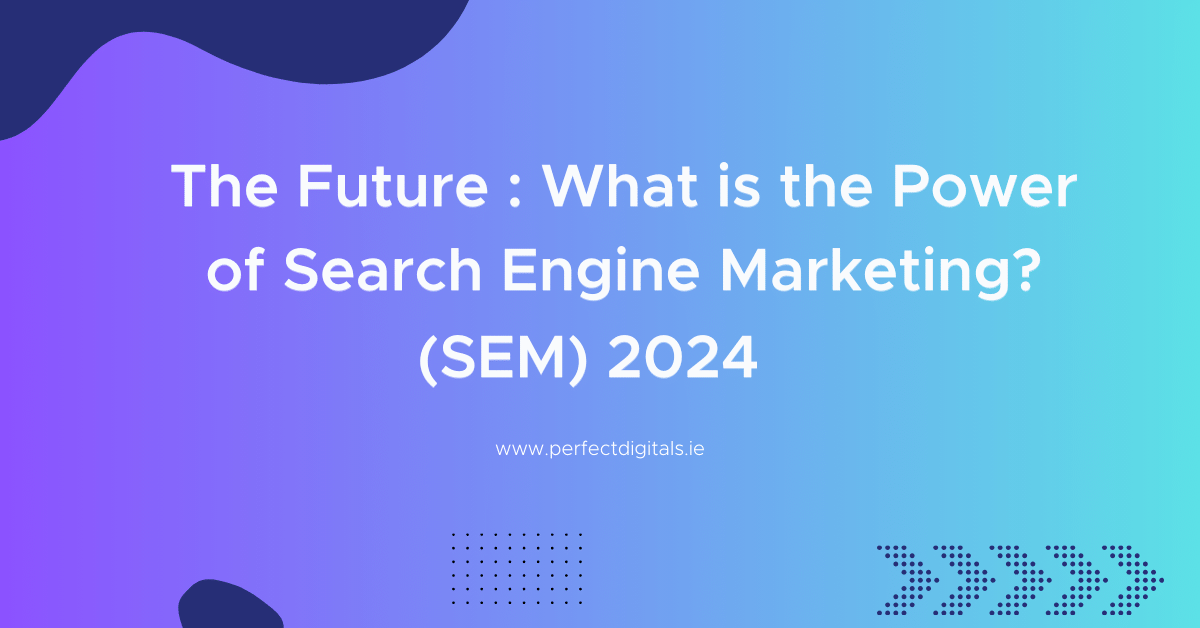
In the digital landscape, marketing plays a crucial role in the success of businesses. As consumer behavior continues to shift towards online platforms, marketers must adapt their strategies accordingly.
Search Engine Marketing, also known as SEM, is a powerful tool that allows businesses to promote their products or services through search engine advertising. By leveraging the power of search engines, businesses can reach their target audience effectively.
What is Search Engine Marketing?
Search Engine Marketing refers to the practice of promoting a website or online business through paid advertisements that appear on search engine result pages (SERPs). These advertisements are commonly referred to as pay-per-click (PPC) ads.
SEM involves bidding on relevant keywords and creating compelling ad copy to attract potential customers.
The Role of SEM in Marketing
SEM plays a vital role in modern marketing strategies. It complements other digital marketing channels such as search engine optimization (SEO), content marketing, and social media marketing.
While SEO focuses on improving organic search rankings, SEM allows businesses to gain immediate visibility through paid advertising. By combining these strategies, businesses can achieve a comprehensive online presence and maximize their marketing efforts.
The Benefits of Search Engine Marketing
Increased Online Visibility
One of the primary advantages of SEM is increased online visibility. With paid advertisements appearing prominently on search engine result pages, businesses can instantly capture the attention of users who are actively searching for relevant products or services. This visibility helps businesses establish brand awareness and attract qualified leads.
Targeted Advertising
Advertisers can select specific keywords, demographics, locations, and even the time of day to display their ads. This level of targeting ensures that ads are shown to the right audience at the right time, resulting in higher click-through rates and conversion rates.
Measurable Results
SEM offers detailed analytics and tracking capabilities, allowing businesses to measure the effectiveness of their campaigns accurately. Advertisers can monitor key metrics such as impressions, clicks, conversions, and return on investment (ROI).
Cost-Effectiveness
Compared to traditional advertising methods, SEM offers cost-effective solutions for businesses. Advertisers have control over their budget and only pay when a user clicks on their ad. This pay-per-click model ensures that businesses pay for actual engagement, making SEM a cost-effective marketing strategy for businesses of all sizes.
The Future of Search Engine Marketing
As technology continues to advance, the future of search engine marketing holds exciting possibilities for businesses. Here are some key trends that will shape the future of SEM.
Voice Search Optimization
With the rise of voice assistants and smart speakers, voice search is becoming increasingly popular. Businesses will need to optimize their SEM strategies to target voice queries effectively. This involves understanding natural language patterns and incorporating conversational keywords into ad copy and landing pages.
Mobile Optimization
Mobile devices have become an integral part of people’s lives, and mobile searches are constantly growing. To succeed in the future, businesses must prioritize mobile optimization in their SEM efforts. This includes creating mobile-friendly landing pages, utilizing mobile ad formats, and delivering seamless user experiences across devices.
Artificial Intelligence and Machine Learning
Artificial Intelligence (AI) and Machine Learning (ML) technologies are transforming the way SEM campaigns are managed. AI-powered algorithms can analyze vast amounts of data, optimize ad targeting, and automate bidding strategies. As these technologies continue to evolve, businesses can expect more efficient and effective SEM campaigns.
Personalized Advertising
Personalization has become a significant factor in marketing success. SEM will leverage user data and behavioral insights to deliver personalized ads tailored to individual preferences and needs. By providing relevant and personalized experiences, businesses can enhance customer engagement and drive higher conversion rates.
Conclusion
In conclusion, Search Engine Marketing (SEM) is a powerful marketing strategy that businesses should embrace to stay competitive in the digital landscape. With its ability to increase online visibility, target specific audiences, provide measurable results, and offer cost-effective solutions, SEM has become an indispensable tool for businesses of all sizes.
As the future of marketing unfolds, businesses must adapt to emerging trends such as voice search optimization, mobile optimization, AI integration, and personalized advertising to leverage the full potential of SEM.
If you also wish to benefit from online marketing to escalate your sales, do not hang back to contact us.
Our team of professionals can offer tailored advice and support to help your company succeed in the cutthroat field of digital marketing.

Comments are closed